April 18, 2018 – How do you cultivate innovation in a traditionally risk-adverse legal profession? Where do you begin? Start by asking, “Why?” Last year’s Wisconsin Legal Innovators did just that.
Go Ahead, Just Doubt Me
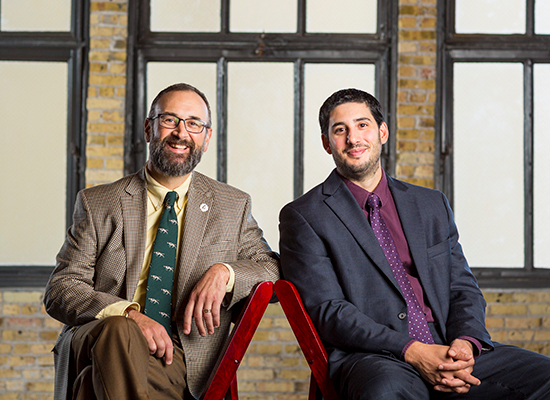
Private lawyer Seth Dizard and municipal lawyer Nick DeSiato struck on the idea of using receiverships to deal with foreclosed or nuisance properties in Milwaukee.
“Forget how things have been and focus on how things should be,” says Nick DeSiato of the Milwaukee City Attorney’s Office.
“I’m from Philly. We’re scrappy and have a chip on our shoulders from a generation of failed sports teams,” says DeSiato. “If someone doubts that the next ‘great idea’ I’m working on will ever come to fruition, I get even more fired up to make it happen.”
DeSiato and Seth Dizard of O’Neil, Cannon, Hollman, DeJong & Lang S.C., Milwaukee, struck on the idea of using receiverships to deal with foreclosed or nuisance properties in Milwaukee.
“Listen. Hear what people are saying, and adapt your practices,” says Dizard. “Act like you’re at home or at the grocery store. Opacity and ‘legalese’ no longer serve to justify or legitimize the profession as it may have in the past. Today, it creates barriers.”
Think Critically
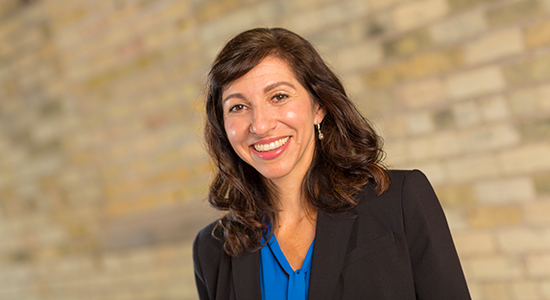
Cristina Bordé and her colleagues noticed the exoneration rate for Latino inmates was disproportionately low compared to that for African American and non-Latino white inmates. Why was that? What could be done? Those questions spurred creation of the Wisconsin Latino Exoneration Program, an initiative of the Wisconsin Innocence Project at the U.W. Law School.
“Think critically about the segments of the population that are underserved,” says Cristina Bordé of the U.W. Law School’s Wisconsin Latino Exoneration Program.
Bordé was inspired to address a gap when noticing there was a much lower number of Latino exonerates than expected given the number of Latinos in the prison population. She reached out to the Latino community to identify the factors that tend to arise in Latino cases that lead to wrongful convictions.
Her selection as a 2017 Wisconsin Legal Innovator increased the visibility of her program, leading to requests to speak at events. “It has helped spread our message,” says Bordé.
It’s the Little Things that Matter
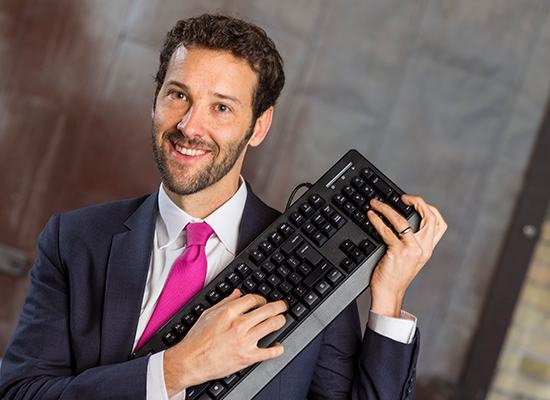
Brian Potts invented LegalBoard™, which has keys for inserting symbols, footnotes, comments, legal phrases, and more with just a quick keystroke, saving time and frustration when typing legal briefs.
Brian Potts, inventor of LegalBoard™, says “Just work at making yourself and the profession better every day. Often it’s the little things that matter most to people.” Potts invented a keyboard that saves time and frustration when typing legal briefs.
“I’m always looking for ways to make life better and to have as much fun as possible while doing so. I have a restless mind. When I settle on a good idea, I can’t stop thinking about it until I take action,” says Potts of Perkins Coie LLP, Madison.
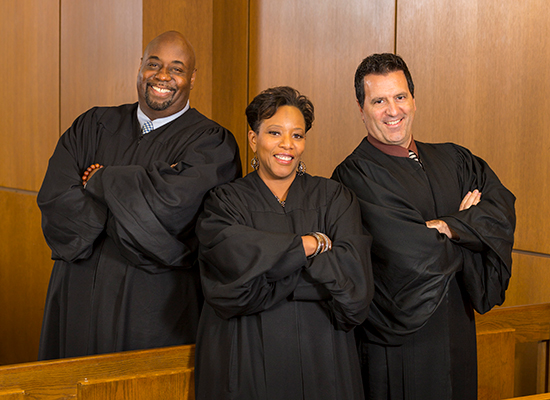
Milwaukee Municipal Court judges Derek Mosley, Valarie Hill, and Phil Chavez devised a plan to help reduce the number of people who skipped their court dates by holding walk-in Warrant Withdrawal Wednesdays at the courthouse. To increase accessibility, they then took the court out into the community.
Wanted: 2018 Wisconsin Legal Innovators
Seth Dizard encourages the legal community to nominate themselves or others for recognition as a 2018 Wisconsin Legal Innovator. “Fresh ideas are essential to our profession, and we should celebrate those good ideas.
“Innovation breeds innovation, just like success breeds success,” he continues. “As lawyers, our reputation is our stock in trade, and favorable exposure enhances a lawyer’s reputation, plain and simple.”
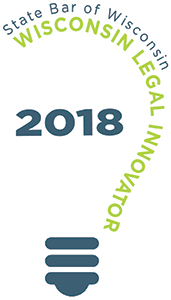 Through the “That’s a Fine Idea: Legal Innovation Wisconsin” initiative, the State Bar of Wisconsin is asking the legal community to help it tell the story of legal innovation.
Through the “That’s a Fine Idea: Legal Innovation Wisconsin” initiative, the State Bar of Wisconsin is asking the legal community to help it tell the story of legal innovation.
Tell us about the people and ideas that are changing Wisconsin’s legal landscape. Nominate a Wisconsin Legal Innovator who breaks with tradition to do it better. The Wisconsin Lawyer will feature the people behind the best examples of legal innovation in the November 2018 issue.
Innovation can come in many forms. It could mean:
-
New ways to use technology to improve client service or serve a new market
-
Best practices for promoting workplace diversity
-
New marketing/business development strategies
-
New ways of providing pro bono or reduced-cost services
-
Changes in internal operations that result in greater efficiency
Learn more or find the nomination form at ThatsaFineIdea.com. The deadline for nominations is June 30, 2018.
